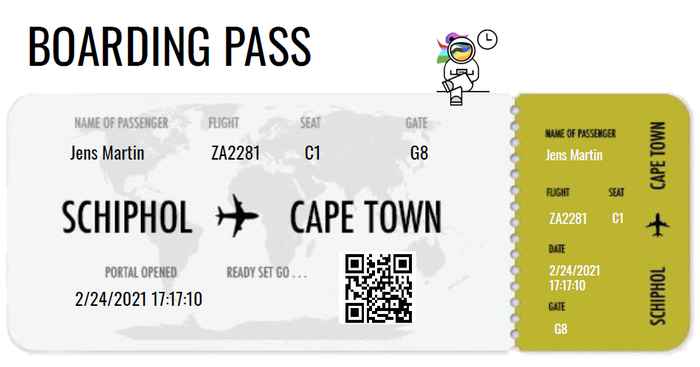MIF pioneers virtual study trip to South Africa
24 March 2021

The sales and recruitment team of the MIF executive master's programme decided to take on the challenge of bringing this country to life by virtual means.
Unexpected perks
MIF study trip partner Marjolijn Dijksterhuis: 'We looked at every part of the study trip and went to work. We developed multi-media learning quests – virtual explorations of South Africa’s iconic places and people – to introduce the students to the learning context. We then designed a process that got the students to connect with high profile speakers, fintech innovators, informal entrepreneurs and inclusive finance consumers. The aim was to create a learning experience that was still 'up, close and personal’, just in a different way.’
MIF Programme Director Jens Martin was enthusiastic about the virtual trip: 'While you can’t get a first-hand impression of the smells and tastes of South Africa, there are still a lot of possibilities. And along the way, we even came across a few unexpected perks of going virtual. Reading newspaper and journal articles about a country is one thing, it's another to have your own virtual portal to the top of Table Mountain. Students also got a 3D look around Robben Island to learn about Nelson Mandela’s life and legacy, and saw inequality at its most extreme: seaside villas a stone’s throw away from hundreds of tiny tin shacks.'
These fintechs, all disruptors in their industries, had developed solutions for South Africans lower down on the economic pyramid.
Fintech for the disadvantaged
The MIF students teamed up with South African fintechs – some based in Cape Town, some in Johannesburg (virtual perk #2: no location-based constraints). These fintechs, all disruptors in their industries, had developed solutions for South Africans lower down on the economic pyramid. This allowed our students to get first-hand exposure to financial innovations in South Africa’s emerging market space and learn about financial needs and behaviours. They learned about this unchartered territory by speaking directly to ‘their’ fintech’s envisioned customers.
Inclusive financial innovation
The students worked together in groups of 4-6, guided by a process designed to leverage diverse viewpoints and encourage the development of context-appropriate concepts. Each group got to run their ideas by a South African inclusive finance expert and then test them in another round of talks with potential customers. The week ended with the groups pitching their best thinking to great acclaim from the fintech entrepreneurs and a faculty panel of experts.
'The quality of the work done and the level of engagement throughout the week were phenomenal and an indication of the success of the South Africa virtual project,' said Martin, adding: 'While we're looking forward to being able to return to South Africa in person, we are glad our students had an enjoyable and productive learning experience in this format'.